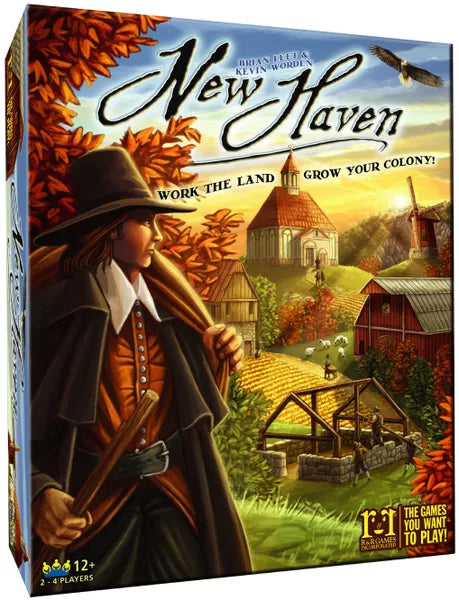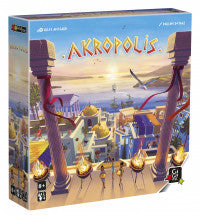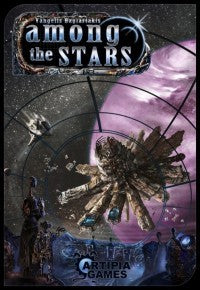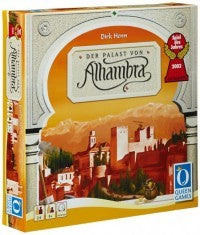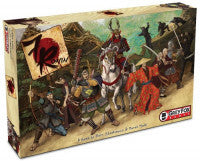In New Haven, set in colonial New England, players must develop the riches of the land and build a thriving settlement. Players place tiles strategically to a shared game board to cut timber, quarry stone, plant fields of wheat, and fill pastures with fat sheep. Players then use these resources to erect buildings on their own village boards, attempting to complete rows and columns for population points. Whoever can build the biggest and most prosperous town will end up with the biggest population and win the game!
New Haven is a tile-laying game with a drafting component. The center board is the land between the player villages from which resources will be gathered. Players select from their two hidden tiles and play on this board to generate available value in some of the four resources. Once per game, each player can get a shipment which delivers a large value of one specific resource type.
This value is then used by the player to play building tokens on his personal village board. However, he can play only building tokens already owned behind his player screen, with restrictions on how buildings must be arranged. He can elect to play a token face down for more flexibility, but this means a lower score if he successfully completes that row or column of buildings.
Once a player is done building, any value he hasn’t used is available for his opponents to use to build! Thus, the goal when placing resource tiles is to generate just enough for what is needed, not the most that can possibly be created. Finally, the player drafts new building tokens for use on future turns; plan your creation and consumption of resources to perfectly match your needs, and you’ll be rewarded with additional tokens.
The base game lasts ten turns, and the player who attracts the most colonists to his village by completing roads and avenues of buildings wins the game.
New Haven plays well with 2, 3, or 4 players, lasting about 15 minutes per player, with a bit more time needed for learning games. The game includes a side B game board with some twists, as well as rule variants that can make the gameplay either more forgiving or more strategic.
Prompt Shipping and professional packaging
Our long-standing relationship with UPS FedEx DHL and other carriers around the world gives us the ability to provide a range of shipping services. Our warehouse personnel is highly-skilled and will package your items according to our precise and exact specifications. Your goods are thoroughly checked and properly secured before shipping. Everyday, we send to thousands of clients in different countries. This shows that we're committed to be the largest retailer online in the world. The warehouses are located located in Europe as much as they are in the USA.
Note: Orders that contain more than one item will be assigned a distinct processing time for each item.
Prior to shipping We will inspect thoroughly the items you have ordered. The majority of orders will be sent within 48 hours. The delivery time is estimated to be between three and seven days.
Returns
The inventory is always changing and we do not completely manage it due to the fact that many stakeholders are involved, including our factory and warehouse. The actual stock levels can fluctuate at any point. Please understand it may happen that your order may be out of stock once the order has been placed.
Our policy is valid for 30 days. Unfortunately, if thirty days have passed from the date you purchased the item, we cannot offer you a return or exchange.
Your item must be in its original packaging and be unused. It should also be in the original package.
Related products
Board Game
Board Game
Board Game
Board Game
Board Game
Board Game
Board Game
Board Game
Board Game
Board Game
Board Game
Board Game
Board Game
Board Game
Board Game
Board Game
Board Game
Board Game
Board Game
Board Game
Board Game
Board Game
Board Game
Board Game
Board Game
Board Game
Board Game
Board Game
Board Game
Board Game
Board Game
Board Game
